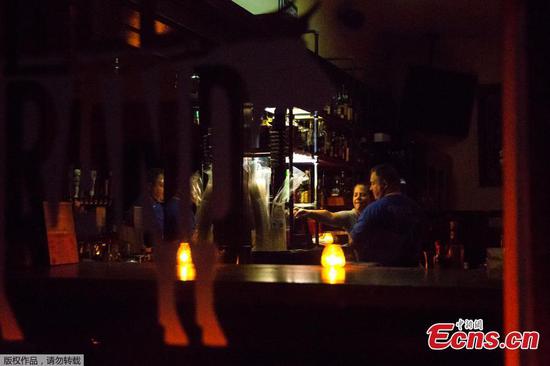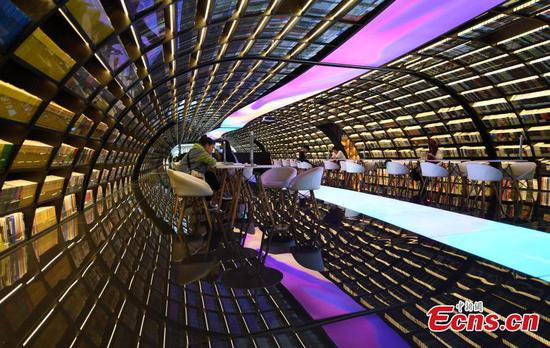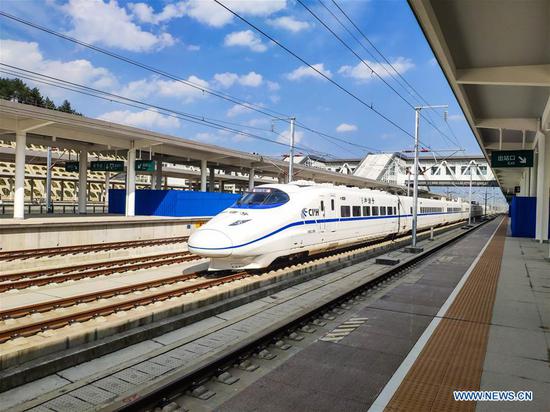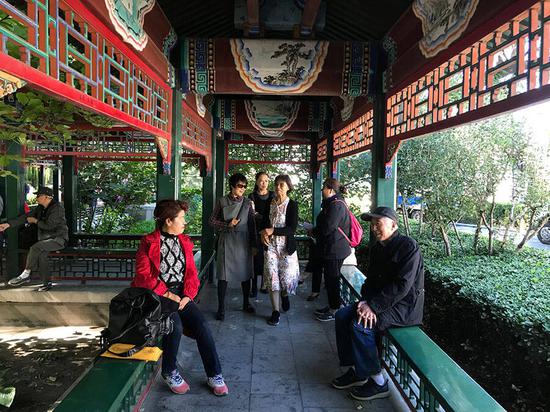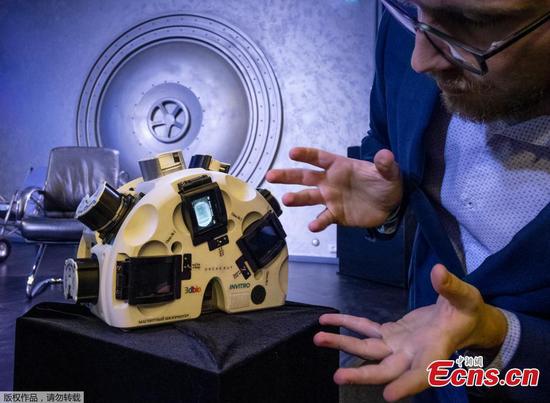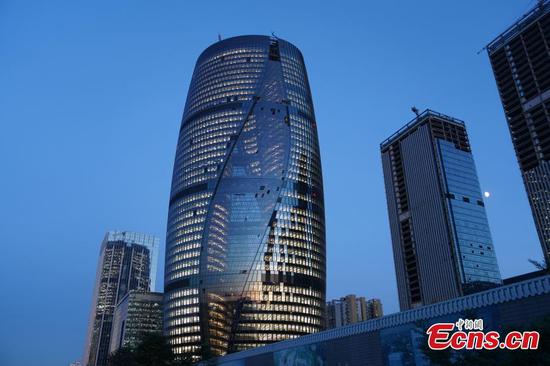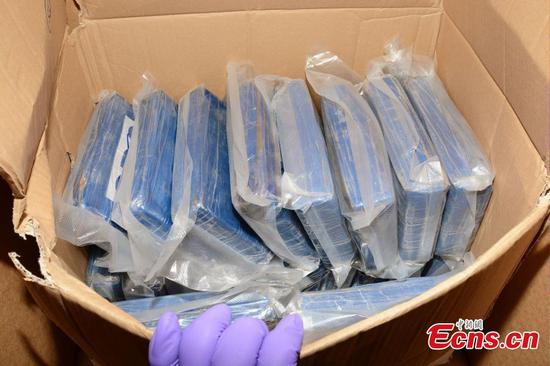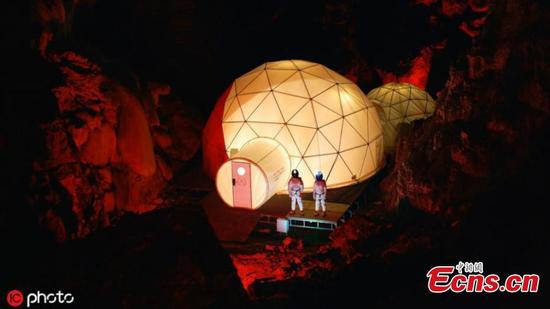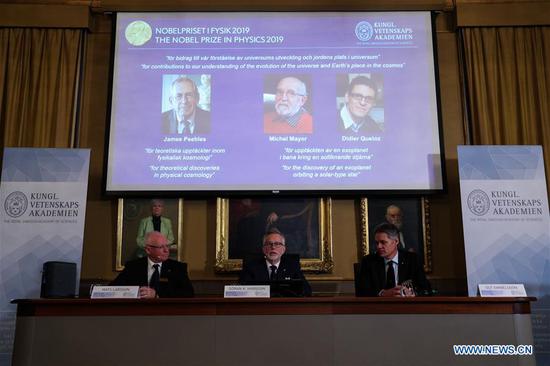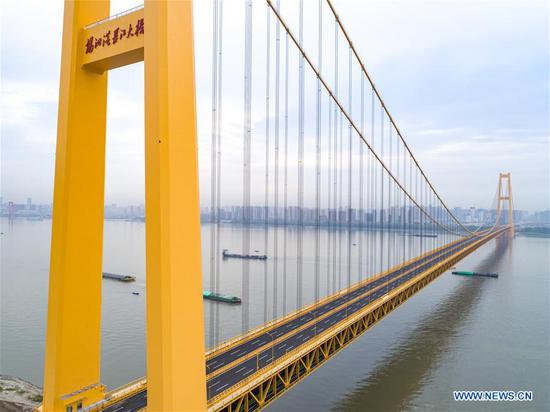
Investors check stock prices on the sci-tech innovation board at a securities brokerage in Hangzhou, capital of Zhejiang Province. (LONG WEI/FOR CHINA DAILY)
MSCI inclusion will bolster valuations, liquidity and lower financing costs
Shanghai's sci-tech innovation board may see increased foreign participation over the next few quarters, as a key global index provider is expected to include eligible STAR-listed firms and as the new board provides a larger investable pool, analysts said.
Equities on the STAR Market will be eligible for inclusion in the MSCI Global Investable Market Indexes (GIMI) from November, the New York-based global investment benchmark provider MSCI Inc said on Wednesday.
Provided the securities meet eligibility requirements as per the MSCI GIMI methodology, they will be included into the MSCI China Indexes as well as their derived indexes, it said.
The requirements include being eligible for the Shanghai-Hong Kong Stock Connect, which enables Hong Kong investors to trade Shanghai-listed stocks, said a statement on the website of MSCI. At present, STAR-listed stocks are not available via the connect.
"The inclusion of STAR-listed firms into MSCI's index universe will boost global capital participation in the market," said Xue Yi, a finance professor at the University of International Business and Economics in Beijing.
Included STAR-listed companies are expected to see higher valuation, better market liquidity conditions and lower financing costs as a result, Xue said. "The companies may receive higher attention from domestic investors as well, as the inclusion, to some extent, will represent MSCI's endorsement of the companies' fundamentals."
MSCI's announcement attested to global investors' recognition of and interest in the newly launched STAR Market, boosting investor confidence in the short run, Xue said.
The 33 STAR-listed firms saw a broad rise on Thursday, registering an average advance of 1.48 percent, according to market tracker Wind Info.
Another nine firms have registered with the China Securities Regulatory Commission, the top securities regulator, and have proceeded to initial public offerings on the STAR Market as of Thursday, while 20 firms are awaiting the final registration from the CSRC after passing IPO reviews from the Shanghai Stock Exchange, according to the SSE.
Analysts expect that the STAR Market, which debuted in late July with 25 listed firms, may have at least 50 listed firms by early November, the China Securities Journal reported.
Dong Dengxin, director of the Finance and Securities Institute at Wuhan University of Science and Technology, said a key prerequisite of high foreign participation in the STAR Market should be the acceleration in stock issuance, which will provide a bigger investable pool, reduce market volatility, and enable big institutional investors to trade smoothly.
A total of more than 100 firms may hopefully get listed on the new board by the end of this year, according to Dong.
"As the market size enlarges quickly as a part of the STAR's trial registration-based IPO system, stocks may see prices fall on their first day of trading. This will lead to less speculation and more efficient price discovery," Dong said.
Eugene Qian, president of UBS Securities, said the STAR Market may attract more foreign institutional investors over the next few quarters as the market becomes more sizable and less volatile, adding that his company is eager to explore brokerage business for the market.
President Xi Jinping announced in November that China would launch the STAR Market and pilot the registration-based IPO system. The market expects registration-based reforms on the ChiNext board in Shenzhen will speed up, after Yi Huiman, chairman of the CSRC, visited Shenzhen from Tuesday to Wednesday and pledged to push ahead capital market reforms in the city.












